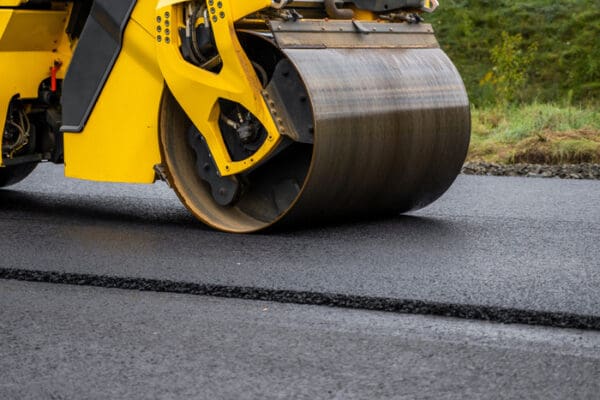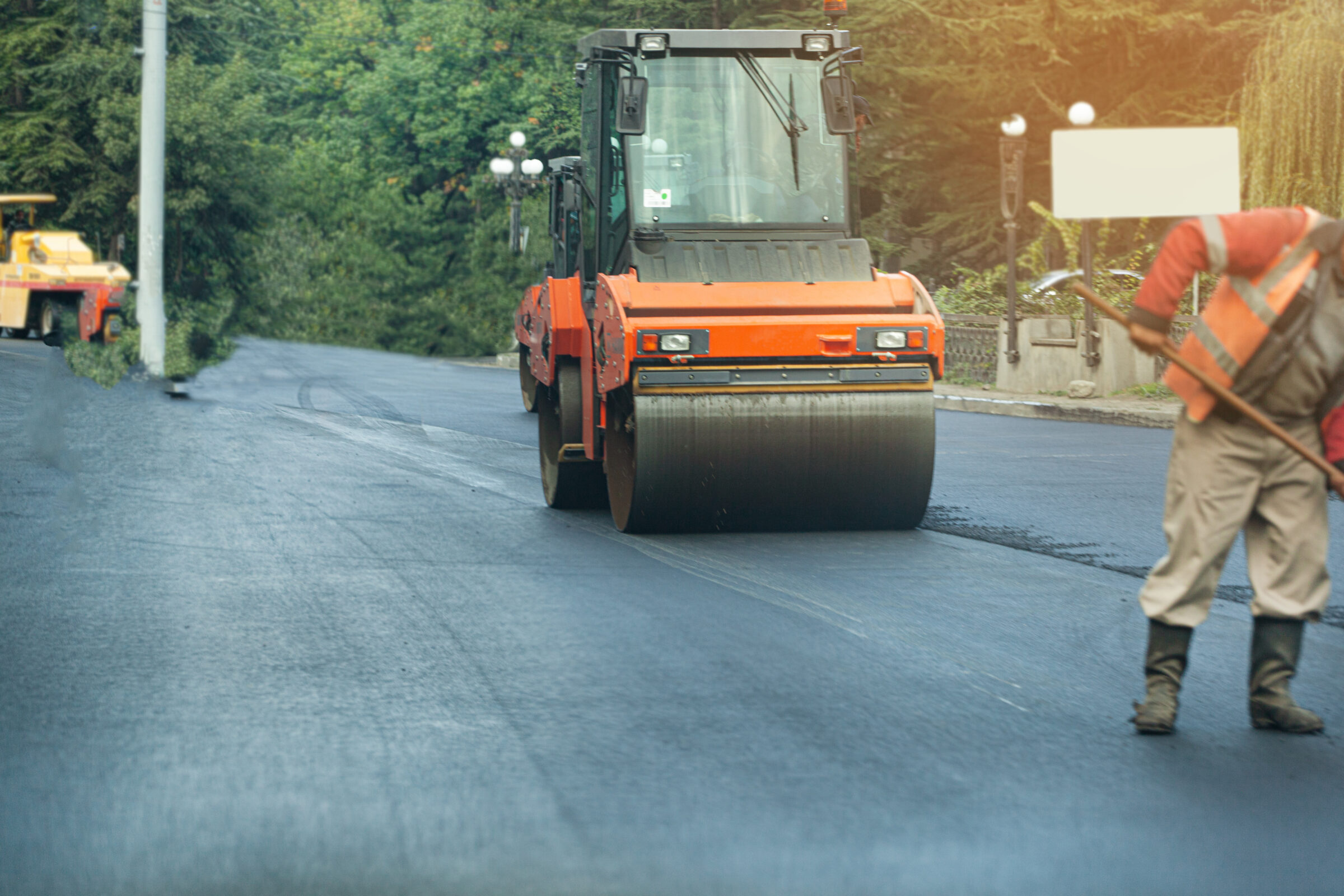Comprehending the Different Kinds Of Asphalt Paving Available Today
In the world of building and construction and facilities, an extensive understanding of the different sorts of asphalt paving is crucial for optimal task results. From the robust Hot Mix Asphalt, created for high-traffic areas, to the ecologically conscious Porous Asphalt that facilitates water administration, each kind provides distinctive advantages customized to particular needs. In addition, considerations such as durability, setup rate, and sustainability even more complicate the decision-making procedure. As we discover these options, it comes to be apparent that the selection of asphalt paving can dramatically influence not just immediate performance but additionally long-lasting capability and ecological factors to consider.

Warm Mix Asphalt
What makes hot mix asphalt a favored selection for roadway building and repair services? Warm mix asphalt (HMA) is preferred for its toughness, flexibility, and efficiency under varying conditions. Made up of a blend of accumulations and liquid asphalt cement, HMA is produced at high temperatures, commonly between 300 ° F and 350 ° F (asphalt paving acworth ga). This high-temperature application allows for optimum bonding and compaction, resulting in a smooth, durable surface that can endure rush hour loads and adverse weather condition.
HMA's capability to be customized to particular job demands is an additional substantial advantage. Various ranks and solutions can be utilized to improve properties such as versatility, resistance to contortion, and durability. Furthermore, warm mix asphalt can be rapidly mounted and available to web traffic, reducing disruption during building and construction.
Ecological considerations likewise play a role in the preference for HMA. The material is recyclable, and recovered asphalt sidewalk (RAP) can be reused, promoting sustainability in roadway building and construction methods. Generally, hot mix asphalt attracts attention as a reputable option, properly giving a lasting, high-performance surface that meets the needs of modern framework.
Cold Mix Asphalt
Cold mix asphalt is a versatile option to warm mix asphalt, particularly fit for particular applications such as patching and surface treatments. This kind of asphalt is produced at ambient temperatures, enabling much easier handling and application without the requirement for considerable home heating devices.
Generally made up of asphalt solutions or lowerings, cool mix asphalt can be combined on-site or acquired pre-mixed. Its residential properties allow it to bind well with existing sidewalk, making it an effective option for fixing craters, fractures, and various other surface area flaws. Furthermore, it can be used in a range of weather, offering a sensible choice for year-round upkeep.

However, while cool mix asphalt is optimal for short-term fixes, it might not supply the very same longevity or sturdiness as warm mix asphalt under rush hour conditions. It is best utilized for low-traffic areas or as a short-term option until more permanent repairs can be executed.
Warm Mix Asphalt
While warm mix asphalt has actually long been the standard for roadway construction, warm mix asphalt (WMA) has emerged as a cutting-edge choice that balances performance with environmental considerations. WMA is produced at dramatically reduced temperatures-- generally in between 215 ° F and 275 ° F-- contrasted to hot mix asphalt, which is warmed to around 300 ° F. This reduction in temperature not only decreases power intake yet likewise reduces greenhouse gas exhausts throughout production.
The modern technology behind WMA includes making use of ingredients or techniques that make it possible for better workability at lower temperature levels. These can consist of chemical additives, frothing procedures, or a combination of both. Consequently, WMA preserves the needed homes for toughness and efficiency while offering a much more eco-friendly alternative.

Porous Asphalt
Porous asphalt stands for a forward-thinking technique in sidewalk layout, focusing on both capability and ecological sustainability. This ingenious material is specifically engineered to allow water to permeate through its surface, successfully decreasing overflow and advertising groundwater recharge. Therefore, porous asphalt is an excellent option for locations prone to flooding or where stormwater monitoring is critical.
The composition of porous asphalt differs from typical asphalt, including a higher percentage of voids that assist in drainage. This property not just lessens surface water buildup but also helps minimize problems like hydroplaning and enhances car traction during damp problems. asphalt paving acworth ga. In addition, porous asphalt can add to city Find Out More warmth island reduction, as it enables better evaporation and cooling impacts in city environments
In regards to installment, porous asphalt requires careful factor to consider of underlying water drainage systems to guarantee optimum efficiency. Maintenance commonly involves normal examinations and cleaning up to avoid clogging from particles, which can harm its leaks in the structure. Overall, permeable asphalt works as a lasting paving option that straightens with contemporary environmental objectives, making it an increasingly preferred selection for both personal and public tasks.
Rubberized Asphalt
Rubberized asphalt is an advanced paving product that includes recycled rubber, commonly sourced from scrap tires, into the asphalt mix. This ingenious technique not just enhances the performance of standard asphalt however also promotes ecological try this website sustainability by reusing waste products. The addition of rubber boosts the versatility and longevity of the pavement, making it immune to breaking and contortion under varying temperature level conditions.
One of the significant benefits of rubberized asphalt is its capacity to lower noise pollution. The rubber fragments absorb noise, causing quieter streets, which is especially beneficial in urban areas. Moreover, this kind of asphalt gives boosted skid resistance, boosting security for automobiles.
Rubberized asphalt also adds to expanding the life-span of road surface areas, causing lowered maintenance prices over time. This longevity is specifically useful for high-traffic locations where wear and tear are sped up. Furthermore, its resistance to dampness infiltration assists reduce the danger of water damage, even more improving longevity.
Verdict
In recap, the selection of asphalt paving kinds-- Hot Mix Asphalt, Cold Mix Asphalt, Cozy Mix Asphalt, Porous Asphalt, and Rubberized Asphalt-- each satisfy unique features that satisfy varied building and construction and upkeep requirements. These options not just boost roadway high quality but likewise contribute to sustainability via minimized energy intake and boosted water monitoring. Understanding these differences is important for choosing the appropriate asphalt kind, inevitably making sure reliable and effective paving remedies in various environments.
From the robust Hot Mix Asphalt, made for high-traffic areas, to the environmentally conscious Porous Asphalt that facilitates water monitoring, each kind provides distinctive advantages customized to specific requirements.Commonly made up of asphalt solutions or cutbacks, cool mix asphalt can be combined on-site or acquired pre-mixed.While hot mix asphalt has long been the requirement for roadway building, warm mix asphalt (WMA) has actually arised as a cutting-edge option that stabilizes performance with ecological considerations.Rubberized asphalt is an innovative paving home product that includes recycled rubber, commonly sourced from scrap tires, into the asphalt mix.In recap, the variety of asphalt paving kinds-- Hot Mix Asphalt, Cold Mix Asphalt, Warm Mix Asphalt, Porous Asphalt, and Rubberized Asphalt-- each fulfill unique functions that cater to diverse construction and upkeep demands.